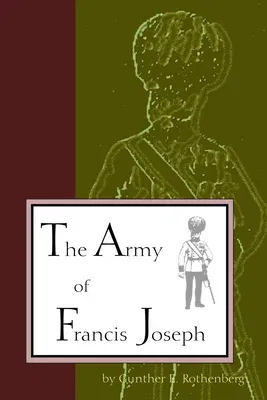Gunther E Rothenberg
(Author)Army of Francis JosephPaperback, 1 October 1999

Qty
1
Turbo
Ships in 2 - 3 days
In Stock
Free Delivery
Cash on Delivery
15 Days
Free Returns
Secure Checkout
Part of Series
Central European Studies
Print Length
312 pages
Language
English
Publisher
Purdue University Press
Date Published
1 Oct 1999
ISBN-10
1557531455
ISBN-13
9781557531452
Description
Product Details
Author:
Book Format:
Paperback
Country of Origin:
US
Date Published:
1 October 1999
Dimensions:
22.86 x
15.49 x
2.29 cm
ISBN-10:
1557531455
ISBN-13:
9781557531452
Language:
English
Location:
West Lafayette, IN
Pages:
312
Publisher:
Series:
Weight:
471.74 gm

